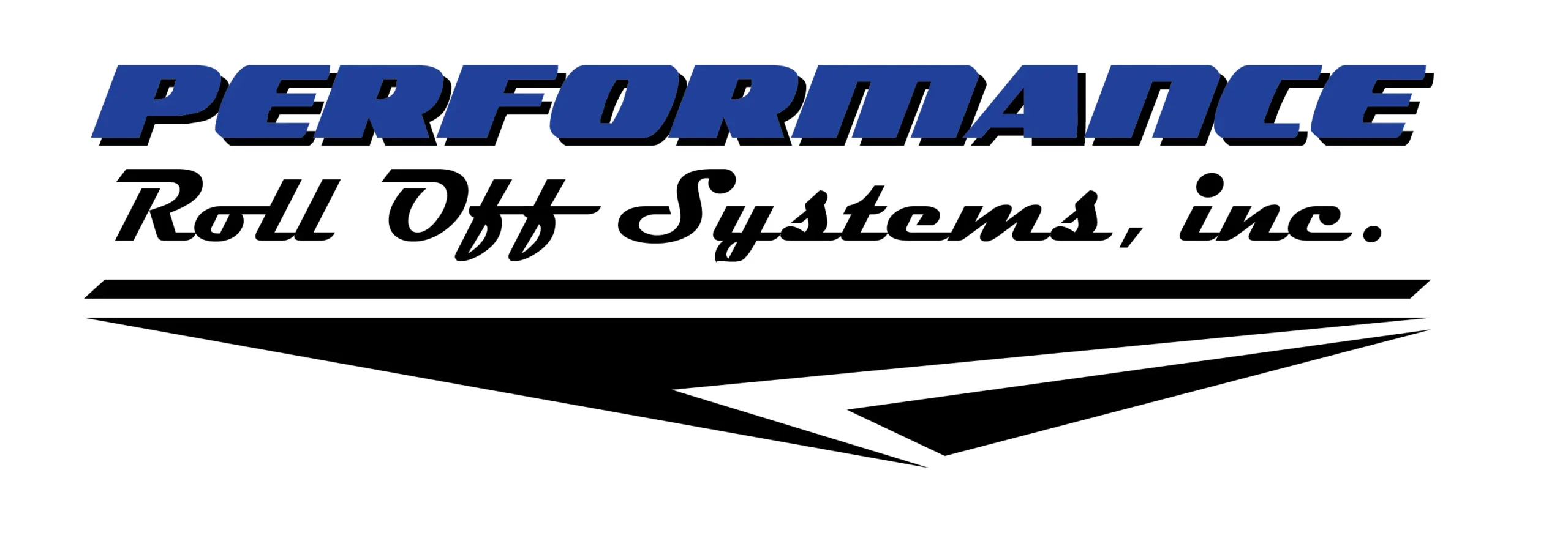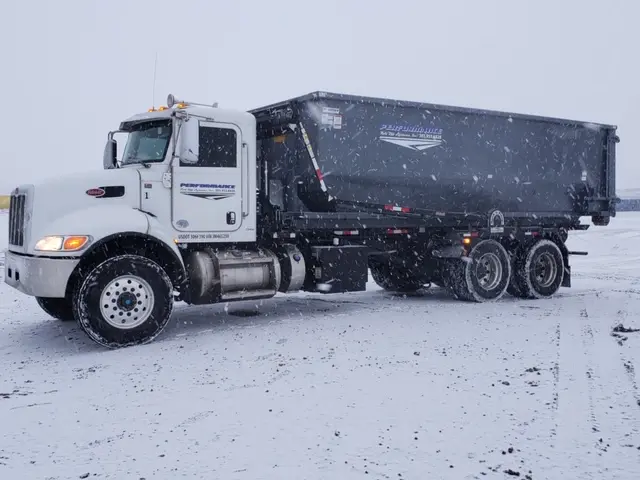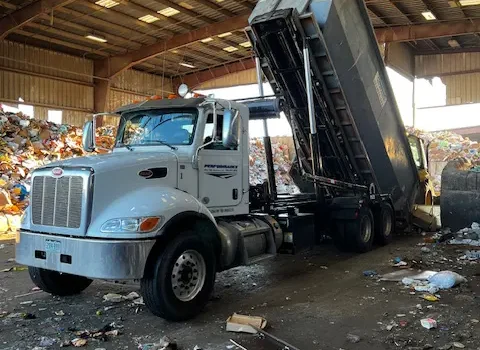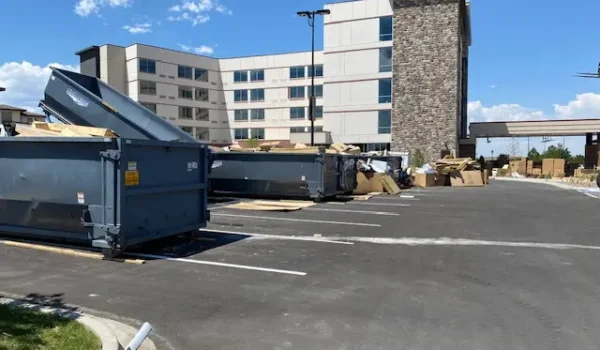Are you starting a home renovation? Or do you need to clear out years of clutter? Then you’ll need to know how to rent a dumpster to save money, time, and reduce the stress that comes with removing junk from your property.
We’re here to assist you with a complete, seven-step guide on roll off dumpster rentals, which includes the sizes you should choose based on your needs and the cost involved. Plus, learn what items can go into a dumpster rental and which materials are prohibited.
This guide covers everything you need to know to rent the right dumpster for your project — without surprises.
Step 1: Determine If You Need a Roll-Off Dumpster Rental
The first step before renting a dumpster is determining whether you need it in the first place. Below are common projects that will require roll off dumpsters.
Common Projects That Require a Roll-Off Dumpster
Roll-off dumpsters are perfect for various projects, including home renovations like disposing of old flooring, drywall, and cabinets. They also handle roofing waste such as shingles and tiles. Use them for landscaping debris, like branches and dirt, moving cleanouts, or construction and demolition materials, such as wood and concrete.
Pro Tip: If your project will generate more than a few truckloads of waste, a roll-off dumpster is the most efficient solution.
Step 2: Choose the Right Roll-Off Dumpster Size for Your Project
The second step when learning how to rent a dumpster is knowing the exact size container you need for your project. Here’s a quick breakdown on dumpster sizes.
Roll-Off Dumpster Size Guide
Roll-off dumpsters come in various sizes to suit different projects. A 10-yard dumpster is perfect for small cleanouts or minor renovations. A 20-yard works well for medium remodels or roofing jobs. For large home renovations or estate cleanouts, choose a 30-yard dumpster. The 40-yard is best for commercial or demolition projects.
At Performance Roll-Off Systems, we offer 10-yard and 30-yard dumpsters, as well as inert dumpsters – 12 feet (l) x 8 feet (w) x 4 feet (h).
Pro Tip: If you’re unsure about the size, opting for a larger dumpster can help prevent overflow and the need for a second rental.
Step 3: Understand Dumpster Rental Costs (So There Are No Surprises)
So how much does dumpster rental cost? This is an important step in our how to rent a dumpster guide because it will help you with your budget.
How Much Does a Roll-Off Dumpster Rental Cost?
Dumpster rental prices can range from $300 to $600, but this will depend on several factors. Larger dumpsters cost more than smaller ones, and longer rental periods may increase the total price. The type of debris also matters. Heavier materials come with higher fees. Delivery distance can further affect overall costs.
Hidden Fees to Watch Out For
Going over the weight limit can lead to extra charges. Additionally, if you keep the dumpster longer than agreed, it may result in extra rental fees.
Pro Tip: Request an all-inclusive quote from your provider to ensure you understand all potential costs upfront.
Step 4: What Can You Put in a Roll-Off Dumpster? (And What’s Not Allowed)
So, what can you put in a dumpster? The most important step when looking at how to rent a dumpster is what items are allowed in dumpster rentals as you can get fined for prohibited items.
Allowed Materials
Roll-off dumpsters can handle a variety of waste, including construction debris like wood, drywall, and tiles. Household junk such as furniture, toys, and clothing is also permitted. Yard waste, including branches, leaves, and grass clippings, can be disposed of, along with roofing materials like shingles and tar paper.
Prohibited Items (Restricted or Hazardous Waste)
Certain materials cannot be placed in a roll-off dumpster, which includes:
- Paints
- Oils
- Solvents
- Tires
- Batteries
- Refrigerators
- Air conditioners
- Asbestos
- Hazardous chemicals
Pro Tip: Check with your provider for a full list of restricted items.
Step 5: Prepare for Your Roll-Off Dumpster Delivery
It’s important to prepare your space before you hire a roll-off dumpster to ensure you can easily fill the container. Here are valuable dumpster rental tips to assist you with your preparations.
Where Should You Place the Roll-Off Dumpster?
Driveways, construction sites, and designated parking areas are ideal locations for a roll-off dumpster. Ensure the placement allows easy access for loading and pickup. Furthermore, avoid blocking sidewalks or public streets unless you have a permit. You should also check local regulations to prevent fines or relocation issues.
Tips for Safe Placement
Placing plywood under the dumpster helps protect driveways from scratches or damage. Before delivery, remove any cars, tools, or obstacles to ensure a smooth drop-off. Lastly, allow the truck to safely position and retrieve the dumpster and maintain at least three feet of clearance on all sides of the container.
Step 6: Fill Your Roll-Off Dumpster Efficiently (Maximize Space and Save Money)
Another valuable tip when renting a dumpster is knowing exactly how to fill the container. These tips will help you save money and maximize space.
Smart Loading Techniques
To maximize space, break down bulky items like furniture and shelving before disposal. Place heavier materials at the bottom for a stable base and distribute weight evenly to prevent shifting. Keep waste below the top rim to avoid extra fees.
Pro Tip: Pre-sorting debris helps speed up loading.
Step 7: Schedule Your Pickup and Ensure a Smooth Removal Process
The last step in our guide on how to rent a dumpster is scheduling your pickup. Here are some best practices to keep in mind.
Best Practices for Pickup Success
Confirm the pickup date to avoid delays or rental extensions. Ensure no cars or obstacles block the truck’s access. You should also check for restricted items before closing the lid to prevent issues.
Dumpster Rental Tips to Save Time and Money
We recommend that you book your dumpster early, particularly during peak seasons, to avoid availability issues. Consider comparing quotes from 2-3 local providers for the best price. You can choose a flexible rental period that suits your project timeline. The last tip is to inquire about discounts for contractors or repeat customers to further reduce costs.
Is Renting a Roll-Off Dumpster Worth It for Your Project?
Renting a roll-off dumpster is a great choice if your project will produce large amounts of waste, and you need a convenient, flexible disposal solution. It’s also ideal for avoiding multiple trips to the landfill.
Pro Tip: For small cleanouts, junk removal services might be more cost-effective.
FAQs about how to rent a dumpster
How much does it cost to rent a roll off dumpster?
The cost to rent a roll-off dumpster typically ranges from $300 to $600, depending on size, rental duration, and debris type.
How much does it cost to rent a dumpster for one day?
Renting a dumpster for one day can cost $250, which includes drop-off, pick-up, and all dumping fees for standard debris.
How much does it cost to rent a dumpster for a weekend?
Renting a dumpster for a weekend generally costs around $300 to $450, which also covers drop-off, pick-up, and disposal fees for standard debris.
How much does it cost to rent a dumpster for a week?
Renting a dumpster for a week can cost between $350 and $550, but this will also depend on the size of the dumpster you choose.
How much does it cost to rent a dumpster for a month?
Renting a dumpster for a month generally costs between $500 and $800 and includes all the services that come with the rental.
Ready to Book Your Roll-Off Dumpster Rental? Let Performance Rolloff Help!
With affordable pricing, flexible rental periods, and reliable service, Performance Rolloff ensures a seamless rental experience. Contact us today for a hassle-free roll-off dumpster rental.





